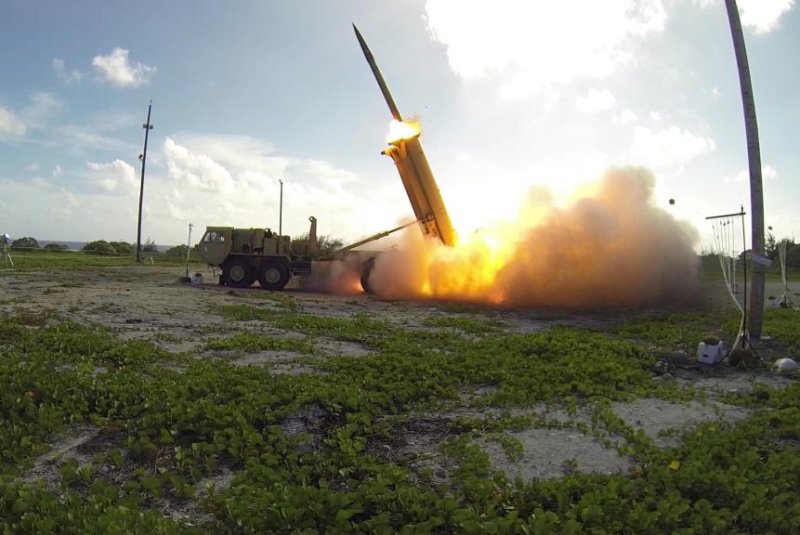THAAD conducting a test launch of an interceptor. Photo courtesy of the Missile Defence Agency.
June 29 (UPI) -- Lockheed Martin Space Systems has received an $18.9 million modification to an existing contract for the United Arab Emirates' Terminal High Altitude Area Defense ground component systems.
The modification will fall under foreign military sales, provide software engineering support for UAE THAAD ground control integration and will raise the cumulative value of the contract from $449 million to $468 million, the Department of Defense said Wednesday.
Work will be performed in Sunnydale, Calif., Huntsville, Ala., El Paso, Texas, and the U.A.E. The contract is expected to be completed by Jan. 23, 2019. U.A.E. foreign military sales funds in the amount of $18.9 million will be obligated.
The Terminal High Altitude Area Defense interceptor system is designed to intercept incoming enemy ballistic missiles as they begin their terminal descent phase in near-space and the upper atmosphere.
It is designed to easily integrate its sensor and targeting data with other ballistic missile defense systems, such as the Patriot PAC-3 ground based missile and the AEGIS Standard Missile-3 naval interceptor. This provides layered defenses at different stages of the ballistic missile's flight.
The interceptor uses its own kinetic energy to directly impact and destroy the missile in a "hit-to-kill," rather than the blast-fragmentation proximity warhead used on most surface-to-air missiles.
There are currently six THAAD batteries under the purview of the U.S. Missile Defense Agency, and the system has been exported to several countries including the U.A.E.
The recent proposed deployment to South Korea in response to North Korean missile tests has created heated debate in South Korea and raised concern in China due to THAADs powerful radars being capable of tracking Chinese missiles.















